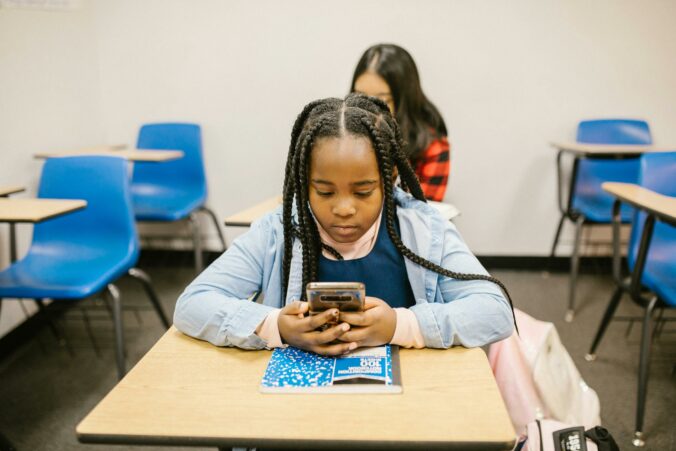On Tuesday, September 24,
educational consultant Jesse Miller spoke to our EDCI 336 class about “personal mobile technology” in the classroom, corresponding regulations, and personal boundaries as a professional in an education setting.
Miller argues that the current methodology to curbing phone usage in class is not preparing students for reality. He further asserts that by banning cellphones in class, parents and administration are expecting students to grow up in the low-tech reality that previous generations grew up in. The solution to this problem is to educate children to help them understand the things that they are experiencing online, teaching them “enduring values,” and empowering their communication.

Other topics, such as internet culture, digital identity/rights, educator responsibilities, sexual harassment, and communication, were enthusiastically discussed.
Jesse Millers website can be viewed here: https://www.mediatedreality.com/
Many students and adults have an unshakable urge to use social media (Watson, 2018)1. As educators, policymakers, and adults, we need to ensure the well-being of the children in our society. A part of this well-being is delivered through students learning the prescribed curriculum. According to a 2022 meta-analysis on social-media addiction conducted by Diego Calderón-Garrido2, there is an inverse relation between phone use and academic performance.
Banning cellphones in school is likely not the most effective solution to the problem. Calderón-Garrido concluded that the uncontrollable urge to go on social media could be avoided if “there is sufficient emotional education and good development of media literacy.” He also posits that the “authoritarian and disciplinary style are negatively related to the problem of dependency.” So, while banning cellphones may have a positive impact on academic performance, there may be unintended consequences for the overall problematic cellphone use.
Calderón-Garrido and Miller would probably agree on this: Children need to be trained to have sufficient self-regulation and digital literacy skills before cell phones are introduced in the classroom.
Below is a great TEDxtalk on cell phone addiction, and some of the implications on mental health arenot talked about in this article.
- Watson, J. C., Prosek, E. A., & Giordano, A. L. (2021). Distress among adolescents: An exploration of Mattering, social media addiction, and school connectedness. Journal of Psychoeducational Assessment, 40(1), 95–107. https://doi.org/10.1177/07342829211050536 ↩︎
- Calderón-Garrido, D., Ramos-Pardo, F. J., & Suárez-Guerrero, C. (2022). The use of mobile phones in classrooms: A systematic review. International Journal of Emerging Technologies in Learning (iJET), 17(06), 194–210. https://doi.org/10.3991/ijet.v17i06.29181
↩︎
